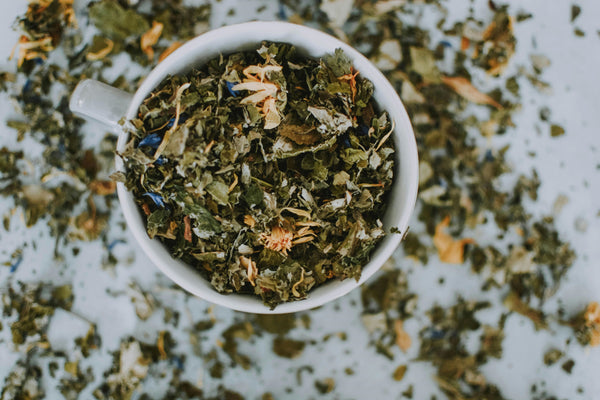While there are various remedies available in the market for constipation relief, herbal teas have gained popularity due to their natural properties and gentle effects on the digestive system. Explore the best teas for constipation relief. Whether you prefer classic black tea or soothing peppermint, these teas may help alleviate constipation symptoms and promote healthy bowel movements. Say goodbye to irregularity and embrace a herbal solution to your digestive woes.
Can Tea Help Relieve Constipation?
To a certain extent, yes. When it comes to relieving constipation, fluids play a crucial role in softening the stool and promoting bowel movements. Drinking tea can be an effective way to increase fluid intake and keep the intestine hydrated. Certain types of tea have natural laxative properties that can stimulate the colon and help alleviate constipation. Additionally, the warmth of the tea can also help relax the muscles in the intestinal walls, making it easier for stool to pass through.
However, it's important to consult a medical professional if you plan to consume a tea with medicinal properties in it. Some teas are safe for regular consumption, while others with pronounced laxative effects may only be recommended for short-term use.
5 Best Herbal Teas for Constipation

Constipation is a common problem that can be relieved by drinking herbal teas. Some teas have a known laxative effective, which helps to promote bowel motility and alleviate constipation. These tea options are often available as tea bags for easy use. Drinking these herbal teas during instances of occasional constipation can help to maintain a healthy and regular bowel function.
Senna Tea
Senna is a natural remedy often used to relieve constipation. It is made from the leaves and pods of the senna plant, which contain compounds called sennosides. These compounds stimulate the muscles in the digestive system, helping to move stool through the digestive system. Drinking senna tea can promote bowel movements and relieve symptoms of constipation. However, it is important to use this tea in moderation and under the guidance of a healthcare professional, as excessive use can lead to dependency and other side effects.
Ginger Tea
Ginger tea is known for its many health benefits, and one of them is its ability to relieve constipation. This tea can help reduce discomfort and bloat that comes with constipation. It can act as a natural laxative and can help to stimulate your digestive system. It works by relaxing the muscles of the intestines and promoting healthy digestion. Drinking a cup of ginger tea can provide relief from constipation and improve overall gut health.
Peppermint Tea
Peppermint tea is often used as a natural remedy for constipation. Its antispasmodic properties can promote the relaxation of muscles in the gastrointestinal tract. It is also known for its soothing effect on the stomach, making it a popular choice for digestive issues. To make the tea, steep 1-2 teaspoons of dried peppermint leaves in hot water for 5 minutes. It is recommended to drink a cup of this tea after meals or before bedtime to help relieve constipation. However, it is important to note that peppermint may not be suitable for everyone, especially those with gastroesophageal reflux disease (GERD) or certain digestive disorders.
Black Tea
Black tea is often used as a natural remedy for constipation. It contains compounds called tannins, which have been shown to have a mild laxative effect. These tannins help to stimulate the muscles in the intestines. In addition to its laxative properties, it also contains caffeine, which can help to stimulate the digestive system. Drinking this tea regularly can help to regulate digestion and prevent constipation.
Fennel Tea
Fennel tea has been used for centuries to relieve constipation. It is made from the seeds of the fennel plant, which have a natural ability to stimulate digestion and relieve intestinal discomfort. The gentle laxative properties of this tea can help to soften stools and also help to reduce bloating and ease abdominal cramps.
Are Laxative Teas Safe?
There are certain types of teas that are often marketed for their laxative properties. While these teas may seem like a convenient solution for relieving constipation, it is important to consider their safety. These teas generally contain ingredients such as senna, cascara sagrada, or castor oil, which can stimulate bowel activity. However, regular and prolonged use of these teas can lead to dependency on laxatives and damage the natural functioning of the digestive system. Moreover, teas with laxative properties can also cause dehydration, electrolyte imbalances, and abdominal cramps. Therefore, it is crucial to exercise caution and consult a healthcare professional before relying on laxative teas as a solution for constipation.
Natural Ways to Prevent Constipation

Probiotic Supplementation
Probiotic supplementation is an effective and natural way to prevent constipation and promote gut health. Probiotics are live bacteria and yeasts that support the overall balance of the gut microbiota. They help in maintaining a healthy gastrointestinal tract by promoting digestion and nutrient absorption. By increasing beneficial bacteria into the digestive system, probiotics can regulate digestive motility, soften the stool, and promote regularity. This can significantly reduce the occurrence of constipation, which is often caused by a lack of fiber in the diet or poor gut health. Therefore, incorporating probiotic supplementation into your daily routine can be a simple and efficient way to prevent constipation and promote overall digestive health.
Exercise
Exercise is a natural and effective way to prevent constipation. Regular physical activity helps stimulate the muscles in the intestines, promoting proper digestion. When we engage in exercise, the movement of our bodies helps to move food through the digestive system and speed up the passage of waste through the colon. This reduces the risk of constipation by preventing stool from becoming hard and difficult to pass. Exercise can also help to reduce stress, which is a common trigger for constipation. Whether it’s going for a brisk walk, doing yoga, or playing a sport, incorporating regular exercise into your routine can keep your digestive system healthy and prevent constipation.
Fiber-Rich Diet
A fiber-rich diet is considered a natural and effective way to prevent constipation. Consuming adequate amounts of fiber can help keep the digestive system healthy. Fiber adds bulk to the stool, making it easier to pass through the gut. This not only prevents constipation but also promotes regularity. Fiber-rich foods include fruits, vegetables, whole grains, and legumes. It is recommended to consume around 25-35 grams of fiber per day for optimal digestive health. Staying hydrated and following a balanced diet can also further enhance the benefits of a fiber-rich diet in preventing constipation.
Wrapping Up
Teas have long been used for their medicinal properties, and they may help relieve occasional constipation. Certain herbal teas, such as senna tea, are known for their laxative effects. Other teas, like peppermint or ginger tea, can help soothe the digestive system and ease discomfort associated with constipation. It's important to note that while teas may provide temporary relief, teas specifically with a laxative effect should not be used as a long-term solution for chronic constipation. If constipation persists or becomes severe, it's best to consult a healthcare professional for further evaluation and guidance. In addition to drinking teas, maintaining a healthy diet, staying hydrated, and exercising regularly can also play a crucial role in promoting regularity.